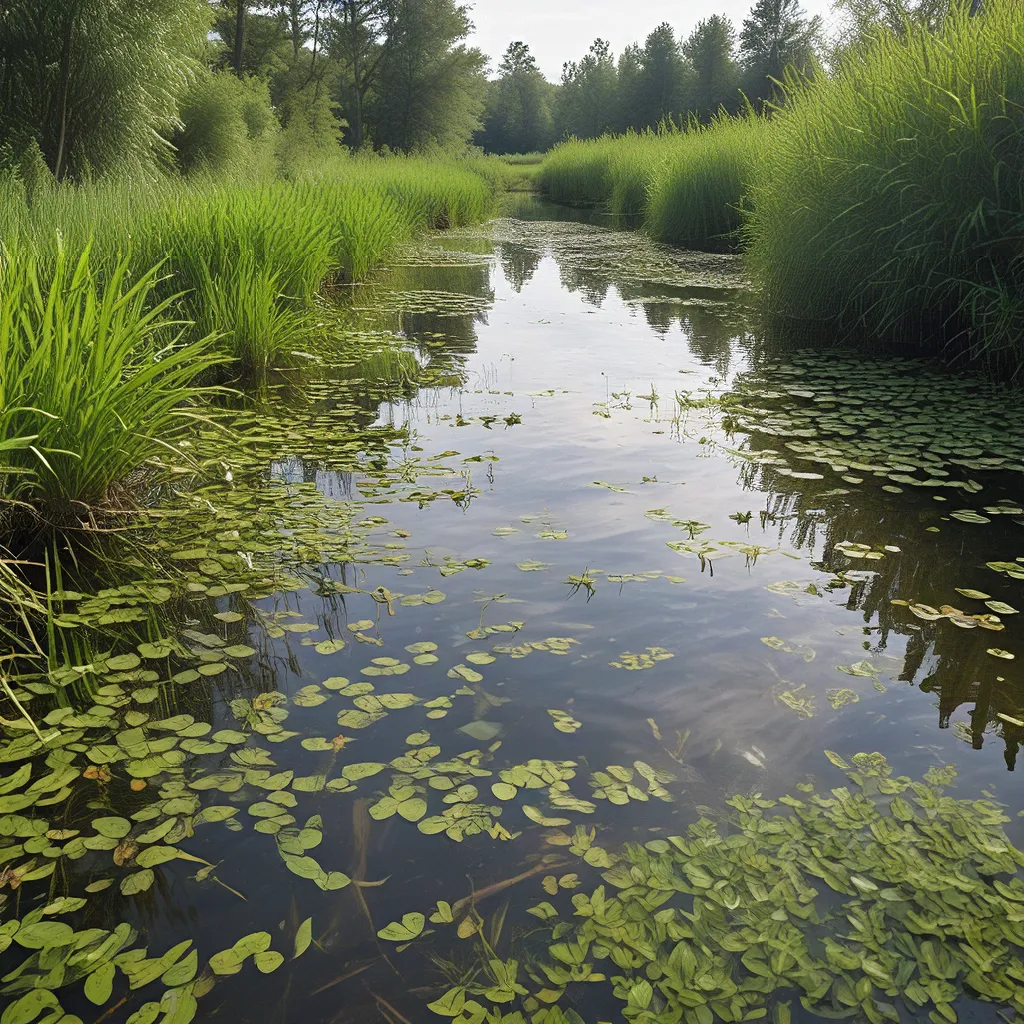
As the world grapples with the growing strain on our natural resources, I’ve been fascinated by the potential of aquatic plant-based wastewater treatment systems. These innovative approaches don’t just clean up our water – they also offer remarkable environmental benefits that could help us tackle some of our most pressing sustainability challenges.
Harnessing Nature’s Water Purifiers
Let me tell you, I never thought I’d get excited about sewage treatment. But then I learned about how certain aquatic plants can be used to naturally filter and purify wastewater. These wetland plants have the incredible ability to absorb and break down a wide range of pollutants, from excess nutrients to heavy metals. It’s like they’ve got their own little water treatment superpowers!
What’s even more remarkable is that these aquatic systems don’t just clean the water – they can also provide valuable habitat for a diverse array of flora and fauna. Imagine a wastewater treatment facility that also functions as a thriving wetland ecosystem, teeming with life. It’s a win-win for both the environment and the community.
Beating Conventional Methods on Sustainability
Now, I know what you might be thinking – how do these aquatic plant-based systems stack up against traditional wastewater treatment technologies? Well, let me tell you, the environmental benefits are staggering.
For starters, these natural systems require significantly less energy to operate compared to energy-intensive conventional methods. They essentially harness the power of photosynthesis and natural microbial processes to do the heavy lifting. And because they don’t rely on energy-guzzling pumps and motors, they have a much smaller carbon footprint.
But the real kicker is the water savings. Aquatic plant-based systems can reduce water consumption by up to 90% compared to traditional wastewater treatment. That’s a game-changer in a world where water scarcity is becoming an increasingly pressing issue.
Protecting Fragile Ecosystems
But the benefits of aquatic plant-based wastewater treatment go beyond just conserving resources. These systems can also play a crucial role in preserving biodiversity and protecting vulnerable ecosystems.
You see, traditional wastewater treatment often involves the discharge of nutrient-rich effluent into nearby waterways. This can lead to the eutrophication of these ecosystems, causing algal blooms and disrupting the delicate balance of aquatic life. But aquatic plant-based systems are designed to retain and recycle these nutrients, preventing them from being flushed into sensitive habitats.
And let’s not forget about the land use implications. Conventional wastewater treatment facilities can take up a significant amount of space, often encroaching on precious natural areas. In contrast, aquatic plant-based systems can be designed to integrate seamlessly with the surrounding landscape, minimizing their footprint and preserving the integrity of the local ecosystem.
The Path Forward: Scaling Up Aquatic Solutions
As I’ve explored the incredible potential of aquatic plant-based wastewater treatment, I can’t help but feel excited about the future. With the right investment and support, these natural systems have the power to transform the way we manage our water resources and protect the environment.
Alpha Wastewater is at the forefront of this innovative approach, leveraging cutting-edge research and design to bring these sustainable solutions to communities around the world. By harnessing the natural power of aquatic plants, they’re not just cleaning up our water – they’re building a more resilient and eco-friendly future.
Of course, there’s still a lot of work to be done. The adoption of aquatic plant-based wastewater treatment systems will require overcoming some regulatory and technical hurdles, as well as shifting public perceptions. But with the growing awareness of the critical importance of sustainability, I’m confident that these solutions will continue to gain traction and become an increasingly vital part of our water management strategies.
So, if you’re like me and you’re passionate about protecting our precious natural resources, I encourage you to keep an eye on the exciting developments in the world of aquatic plant-based wastewater treatment. The future of our water and our planet may just depend on it.